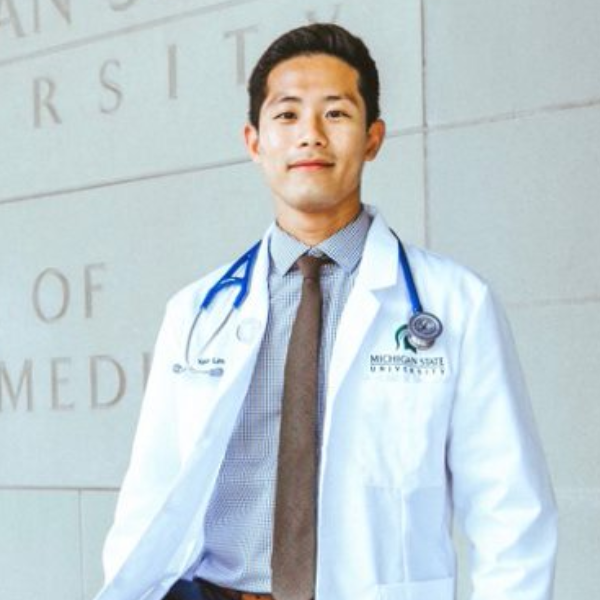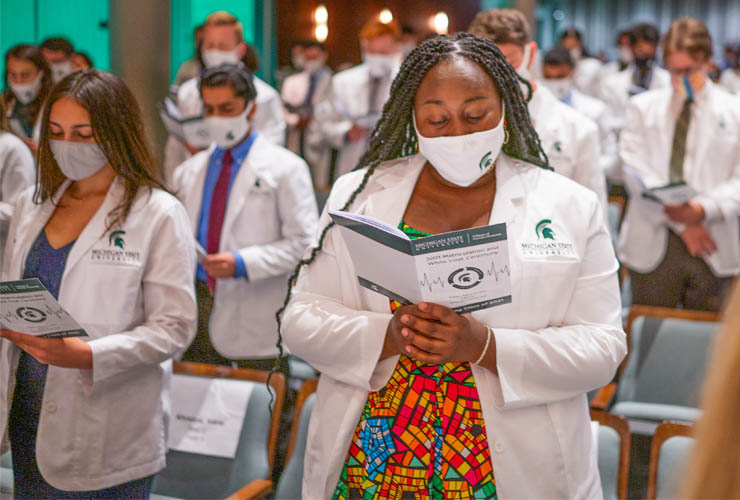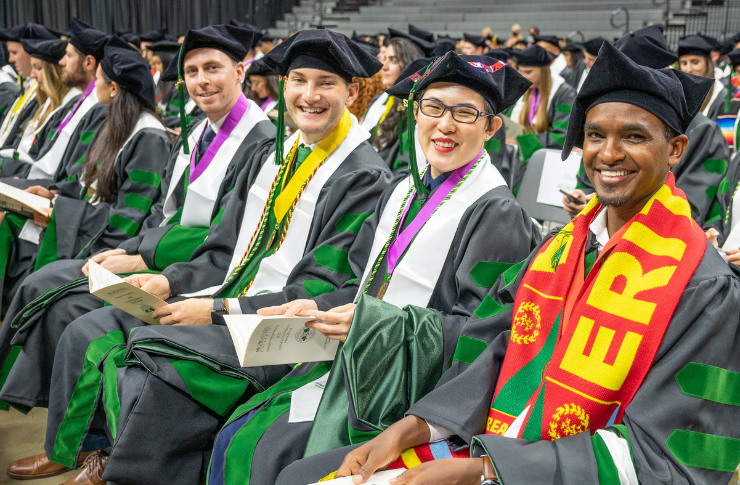About

Mission
Michigan State University College of Human Medicine is committed to educating exemplary physicians and scholars, discovering and disseminating new knowledge, and providing service at home and abroad. We enhance our communities by providing outstanding primary and specialty care, promoting the dignity and inclusion of all people, and responding to the needs of the medically underserved.
1964
Medical School Established
6th
Ranked in Social Mission
8
Community Campuses
6,055
Spartan MDs (alumni)
Community-Based Medical Education
The College of Human Medicine’s footprint spans the state of Michigan. Medical education takes place across eight campuses through affiliations with local hospitals, clinics, and other health care providers. These community campuses are located in Detroit, Flint, Grand Rapids, Lansing, Midland Regional, Southeast Michigan, Traverse City and the Upper Peninsula Region.
Discovery
Three pillar communities provide the college’s foundation for biomedical and public health research. Scientists at the Grand Rapids Research Center, located in the MSU Innovation Park, study women’s health conditions and diseases, Parkinson’s and Alzheimer’s diseases, and cancer. MSU IQ in East Lansing is dedicated to integrating engineering principles into biomedicine, and the college’s Flint Campus is home to community participatory public health research.
Medical Mile
The headquarters for MSU College of Human Medicine is along the Grand Rapids Medical Mile, a corridor of collaborative health science education, academic biomedical research and general clinical and specialty hospital care. The $90 million, privately funded MSU Secchia Center opened in 2010 featuring a state-of-the-art simulation center where students acquire skills for curricular learning in clinical settings. Near the Secchia Center is the MSU Grand Rapids Innovation Park where the college’s Research Center houses 33 biomedical research teams focused on the discovery of new treatments and therapies for the world’s most challenging health conditions and diseases.
The Future of Medicine
For their first and second years, students receive their medical education in either East Lansing, on the MSU campus, or in Grand Rapids, at the Secchia Center. After completing the Early Clinical Experience and Middle Clinical Experience, students join a community campus for their Late Clinical Experience, rotating at any of 9 primary teaching hospitals and 57 community hospitals statewide.
Lifelong Spartans
The alumni population for MSU College of Human Medicine is 6,055 Spartan MDs.







